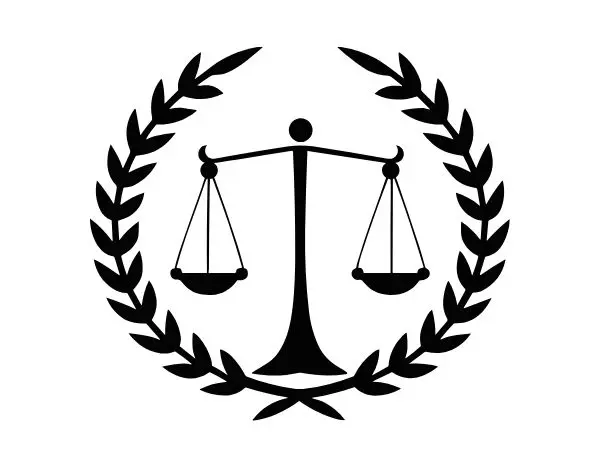When a loved one passes away, their estate must go through a process to settle outstanding debts and distribute assets according to their wishes. At the center of this process stands the executor, sometimes called a personal representative in Washington state. This individual shoulders significant responsibilities during what is often an emotionally challenging time. At NW Legacy Law, we guide executors through their duties and help families understand this crucial role in the estate administration process.
An executor is the person legally appointed to administer a deceased person's estate. Named in the will by the deceased (also called the "testator"), the executor serves as the official representative of the estate throughout the probate process. If someone dies without a will in Washington, the court will appoint an administrator who performs essentially the same functions as an executor.
The executor's primary responsibility is to act as a fiduciary—a person who must act with the highest degree of honesty, loyalty, and care while managing another person's assets. This means always putting the interests of the estate and its beneficiaries above their own.
Key Responsibilities of an Executor in Washington State
The duties of an executor can vary depending on the complexity of the estate, but typically include the following essential tasks:
1. Initiating the Probate Process
The executor begins by filing the will and a petition for probate with the appropriate Washington state court, typically in the county where the deceased person lived. This officially starts the legal process of administering the estate. The court then issues "letters testamentary" that authorize the executor to act on behalf of the estate.
For smaller estates in Washington (generally those under $100,000 without real property), simplified probate procedures may be available, which the executor should explore with their estate planning lawyer.
2. Identifying and Securing Assets
One of the executor's first practical tasks is to identify and take control of all the deceased person's assets. This includes:
- Locating all financial accounts, insurance policies, and investment portfolios
- Securing physical property such as homes, vehicles, and valuable personal items
- Creating a comprehensive inventory of all assets
- Obtaining professional appraisals when necessary to determine fair market value
- Maintaining and protecting assets throughout the probate process
In Washington state, the executor must file an inventory with the court within 90 days of appointment, unless this requirement is waived in the will or by the beneficiaries.
3. Managing Ongoing Financial Obligations
The executor must ensure that bills continue to be paid and that the deceased's property is properly maintained during the probate process. This includes:
- Paying ongoing mortgage payments, utility bills, and insurance premiums
- Managing rental properties if applicable
- Canceling unnecessary services and subscriptions
- Opening an estate bank account for receiving income and paying expenses
- Keeping meticulous records of all financial transactions
4. Notifying Creditors and Paying Valid Debts
Washington law requires executors to notify known creditors directly and publish a notice to potential creditors in a local newspaper. The executor then:
- Reviews all claims against the estate
- Pays legitimate debts from estate assets
- Challenges questionable claims when appropriate
- Negotiates settlements when necessary
Creditors in Washington typically have four months from the publication of notice to file claims against the estate.
5. Filing Tax Returns and Paying Taxes
The executor has significant tax responsibilities, including:
- Filing the deceased's final personal income tax return
- Filing estate income tax returns if the estate generates income during administration
- Paying any outstanding income taxes
- Determining if federal estate tax returns are required (for estates exceeding the federal exemption)
- Addressing Washington state estate tax obligations for estates over $2.193 million (as of 2025)
Washington's state estate tax applies at a much lower threshold than the federal estate tax, making this an important consideration for many estates in our state.
6. Distributing Assets to Beneficiaries
After debts, taxes, and administration expenses are paid, the executor distributes the remaining assets according to the terms of the will. This process includes:
- Interpreting the will's instructions correctly
- Transferring titles and ownership of property
- Distributing specific bequests mentioned in the will
- Allocating the residuary estate (everything not specifically mentioned)
- Obtaining receipts from beneficiaries
When there's no will, the executor must distribute assets according to Washington's intestacy laws, which prioritize spouses, registered domestic partners, and blood relatives.
7. Providing Accounting and Closing the Estate
Finally, the executor prepares a final accounting that details all financial transactions that occurred during administration. After beneficiaries approve this accounting (or the court reviews it), the executor can request that the court formally close the estate and discharge them from their duties.
Challenges Executors Often Face
Serving as an executor can present several challenges:
- Time commitment: Settling even a modest estate typically takes 6-12 months, with more complex estates requiring years.
- Family dynamics: Disagreements among beneficiaries can create emotional stress and practical challenges.
- Technical complexity: Tax regulations, creditor priority rules, and probate procedures require significant attention to detail.
- Personal liability: Executors can be held personally liable for mistakes, making proper guidance essential.
How an Estate Planning Lawyer Helps Executors
Few executors have prior experience with estate administration, which is why professional guidance is invaluable. An estate planning lawyer can:
- Explain legal obligations and fiduciary duties
- Guide the executor through probate court procedures
- Help prepare and file required documents
- Advise on tax matters and deadlines
- Assist with asset valuation and distribution strategies
- Provide representation if beneficiary disputes arise
- Ensure compliance with Washington's specific probate requirements
Planning Ahead: Choosing the Right Executor
If you're creating your own estate plan, selecting the right executor is a critical decision. Consider choosing someone who is:
- Trustworthy and organized
- Financially responsible
- Willing to serve in this capacity
- Likely to outlive you
- Able to handle potential family conflicts
- Geographically accessible to manage your assets
Remember that you can also name a professional executor, such as a trust company or bank, particularly for complex estates or situations where family dynamics might make an individual's service challenging.
Conclusion
The executor role carries significant responsibilities but also provides an important service during a difficult time for families. Understanding these duties—whether you're creating an estate plan or have been named as someone's executor—is essential for ensuring a smooth administration process.
At NW Legacy Law, we believe in empowering executors with the knowledge and support they need to fulfill their duties effectively. Whether you need guidance selecting an executor for your estate plan or assistance serving as an executor yourself, our team is ready to help you navigate this important responsibility with confidence.
Navigate Your Executor Duties with Confidence
Let NW Legacy Law guide you through the complexities of estate administration. Whether you're planning your estate or serving as an executor, our experienced team provides the support and knowledge you need to fulfill these important responsibilities. Contact us today for a consultation and take the first step toward peace of mind.





